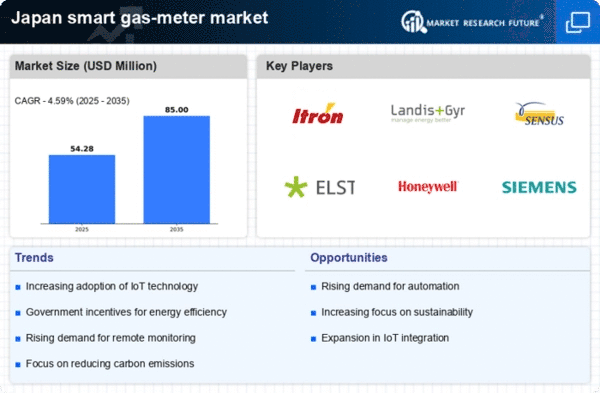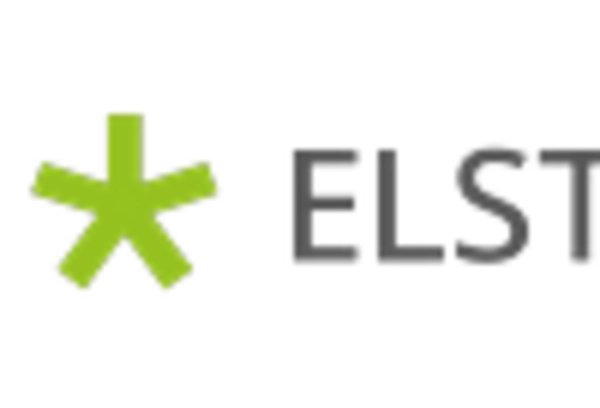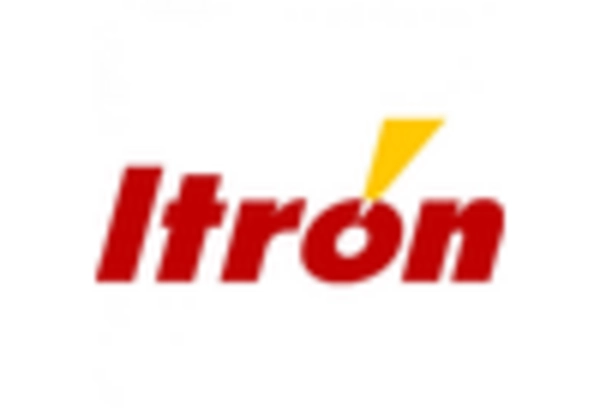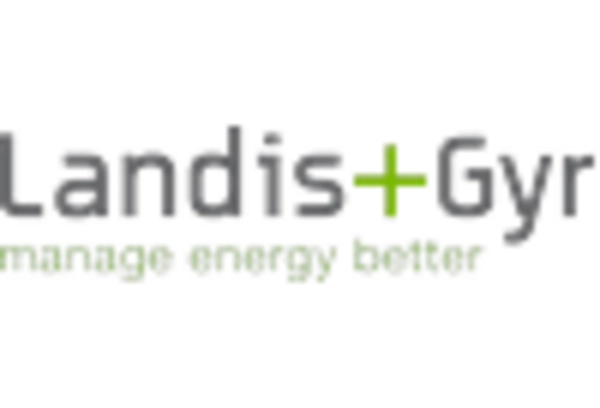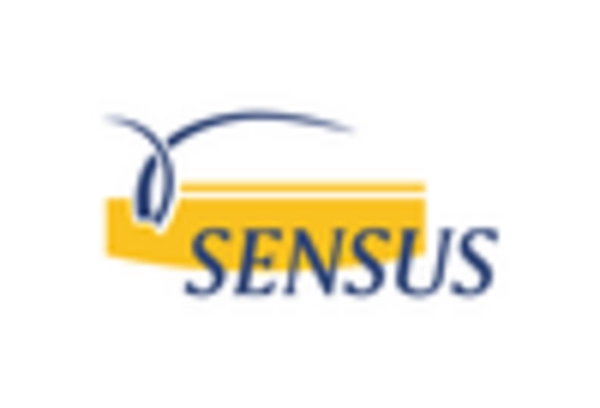Rising Energy Efficiency Standards
The push for enhanced energy efficiency in Japan is a pivotal driver for the smart gas-meter market. The government has implemented stringent energy efficiency standards, compelling utility companies to adopt advanced metering technologies. This transition is expected to reduce energy consumption by approximately 15% by 2030. As a result, the smart gas-meter market is likely to experience significant growth, with an anticipated increase in installations across residential and commercial sectors. The integration of smart meters facilitates real-time monitoring and management of gas usage, aligning with national goals for sustainability and energy conservation. Consequently, the smart gas-meter market is positioned to thrive as stakeholders prioritize compliance with these evolving standards.
Increased Demand for Renewable Energy
Japan's commitment to renewable energy sources is influencing the smart gas-meter market. The government aims to increase the share of renewables in the energy mix to 36-38% by 2030. This shift necessitates the integration of smart gas meters, which can effectively manage the fluctuating energy demands associated with renewable sources. Smart meters provide utilities with the capability to monitor gas consumption patterns, enabling better demand response strategies. This adaptability is crucial as Japan transitions towards a more sustainable energy landscape. The smart gas-meter market is thus likely to expand as utilities invest in technologies that support the integration of renewable energy, ensuring a reliable and efficient energy supply.
Technological Integration in Smart Cities
The development of smart cities in Japan is a significant driver for the smart gas-meter market. As urban areas increasingly adopt smart technologies, the demand for integrated energy solutions rises. Smart gas meters play a crucial role in this ecosystem by providing real-time data on gas consumption, which can be analyzed to optimize energy distribution. The Japanese government has allocated substantial funding for smart city initiatives, with investments projected to reach ¥1 trillion by 2025. This financial commitment is expected to accelerate the deployment of smart gas meters, enhancing the overall efficiency of urban energy management systems. Consequently, the smart gas-meter market is poised for growth as cities evolve into more connected and efficient environments.
Consumer Preference for Smart Home Solutions
The growing consumer preference for smart home technologies is driving the smart gas-meter market in Japan. As households increasingly seek automation and energy management solutions, smart gas meters are becoming essential components of smart home systems. Recent surveys indicate that approximately 60% of Japanese consumers express interest in integrating smart meters with home automation platforms. This trend is likely to encourage manufacturers to innovate and enhance the functionality of smart gas meters, making them more appealing to tech-savvy consumers. The smart gas-meter market is expected to benefit from this shift, as more households adopt smart technologies to improve energy efficiency and convenience.
Government Incentives for Smart Meter Adoption
The Japanese government is actively promoting the adoption of smart gas meters through various incentives and subsidies. These initiatives aim to accelerate the transition to smart metering technologies, which are essential for achieving national energy goals. Financial support for utility companies and consumers is expected to lower the barriers to entry for smart gas meter installations. Reports suggest that the government has allocated approximately ¥50 billion for smart meter initiatives over the next five years. This financial backing is likely to stimulate growth in the smart gas-meter market, as it encourages widespread adoption and facilitates the modernization of gas infrastructure across the country.


